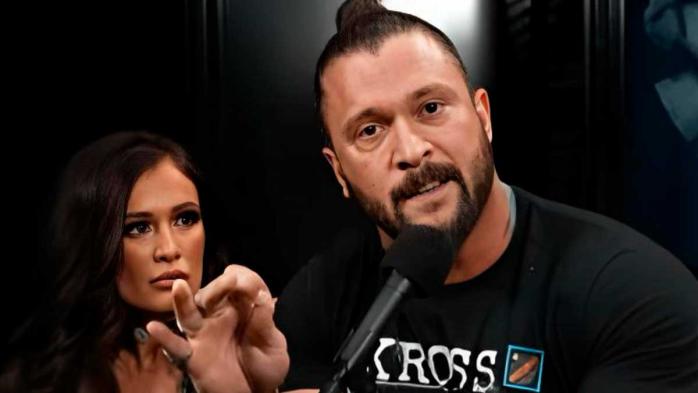
Welcome to the English version of Solowrestling Read more

Welcome to the English version of Solowrestling Read more


Killer Kross has once again made headlines, this time not for his work inside the ring, but for his memorable 'semi-real' promo after WrestleMania 41. In an interview with Chris Van Vliet on the Insight podcast, the wrestler explained how a speech designed to spark conversation ended up causing discomfort among some WWE members.
The moment in question occurred on the post-WrestleMania show hosted by Sam Roberts and Megan Morant. Kross mixed fiction and reality by mentioning his past release and his frustration for not having received more opportunities within the company. "It was something worked, but based on real things. It's that fine line of wrestling that connects with people," he commented. What seemed like a smart move to generate interest, however, was not received with as much enthusiasm in the company's hallways.
The next day, during Raw, Kross noticed a tense atmosphere. "I received a call from Talent Relations. They told me that Creative was upset, that there was anger," he recalled. Far from avoiding the problem, the wrestler went directly to speak with the program's writers to clarify the situation. "I explained everything to them and they said, 'We don't know what you're talking about.' There was a total disconnect."
The confusion dissipated when he discovered that it was actually Triple H who was upset. Kross decided to personally speak with him to clear the air. "We talked and he understood. WWE is a huge company, with many departments, and there isn't always communication between everyone. Hunter was very professional and understood what I was trying to do. I just wanted to create something different and authentic."
During the conversation, Kross also addressed the chants from the audience asking for his return, something that - as he confessed - was a double-edged sword. "Someone called me and said, 'Seize the moment, that won't last forever.' But our success doesn't depend on fans taking over the show," he explained. He appreciated the support from the people, but made it clear that he never wanted those chants to become a distraction.
Those cheers meant a lot to me, but we also have to think about the colleagues who are fighting in the ring. They prepare all week, sacrifice, train, and it wouldn't be fair that while they give one hundred percent, the audience is cheering for someone who isn't on the show. We don't want that to become a lack of respect towards them.
Over time, Kross seems to have adopted a more reflective stance regarding what happened. He admitted that the moment generated 'intense reactions' both among fans and within the locker room, but he believes that mix of reality and fiction is part of what makes the business great. "There's always risk when you cross that line, but that's also where the magic of wrestling is born," he declared.
Today, Kross assures that he is in a more centered stage, seeking balance between provocation and professionalism. "My intention was never to cause problems or attract attention at the expense of others. I just wanted to be honest, connect with the audience, and give them something to talk about. If I did it too well, I guess that also says something," he concluded with a laugh.